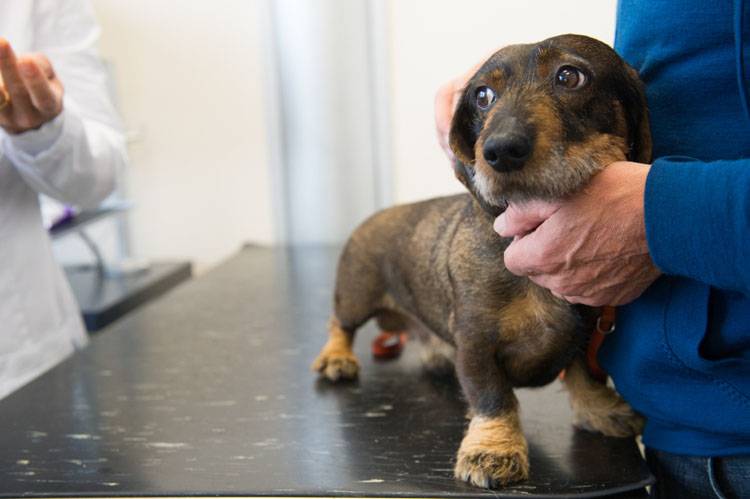What Do Lumps on Dogs Mean?
Finding a lump on your dog can be unsettling. As our dogs live longer, cancer becomes a common concern among pet owners. Dogs can get all types of cancer, including bone cancer, skin cancer, lung cancer, liver cancer and pancreas cancer. The lump could be nothing, but it can also be bad news.
Different Types of Lumps
Some lumps can be felt, seen or discovered under the skin. Cancer may be your immediate thought, but understand that lumps on the skin could be an abscess, a hematoma (blood filled), a benign tumor or hives due to an allergic reaction. A soft lump underneath the skin could simply be a fatty tumor, or lipoma, and is usually not considered a problem.
Any lump or bump you find should always be evaluated by a veterinarian. Seek immediate veterinary assistance if the lump is ulcerated, painful and warm, or if it seems attached to underlying tissues or has been growing rapidly.
Evaluating Lumps
When you go to a veterinary hospital, you may be asked a series of questions, including:
- How many lumps have you found? And where are they located?
- How long has the lump been there? How fast has it been growing?
- Did your dog receive any injections or vaccines recently?
- Has the lump changed in appearance, size or color?
- Has your dog gained or lost weight?
The veterinary assistant or veterinary technician may also ask if your dog has experienced diarrhea, vomited, lost his appetite, drank more or less water, or changed his behavior.
RELATED: 12 Symptoms You Shouldn’t Ignore in Your Dog
Diagnosis
Fine-Needle Aspiration
The veterinarian may check for fat cells, blood cells or cancerous cells by aspirating the mass. This is done by inserting a small needle that is attached to a syringe and drawing out the cells. These cells are then placed on a slide, stained and viewed under a microscope for identification. This process is quick and painless, and can usually lead to a diagnosis.
Biopsy
If the diagnosis is unclear, a biopsy may need to be performed. This may either involve taking a small sample of the lump or removing the entire mass to be sent to a laboratory for analysis. If the mass is simply a benign (non-cancerous) lump or fatty tumor, most times nothing needs to be done. If the diagnosis is cancer, there are many chemo treatments that are available, depending upon the type of cancer and its location.
Through diagnostic testing and treatments, your dog’s life can be saved and he can live a long, comfortable life. If you’re concerned about a lump or bump on your pet, contact your local veterinary hospital.
Source: www.petsplace.com
You may also like: How to Prepare Your Dog for Vet Visits





